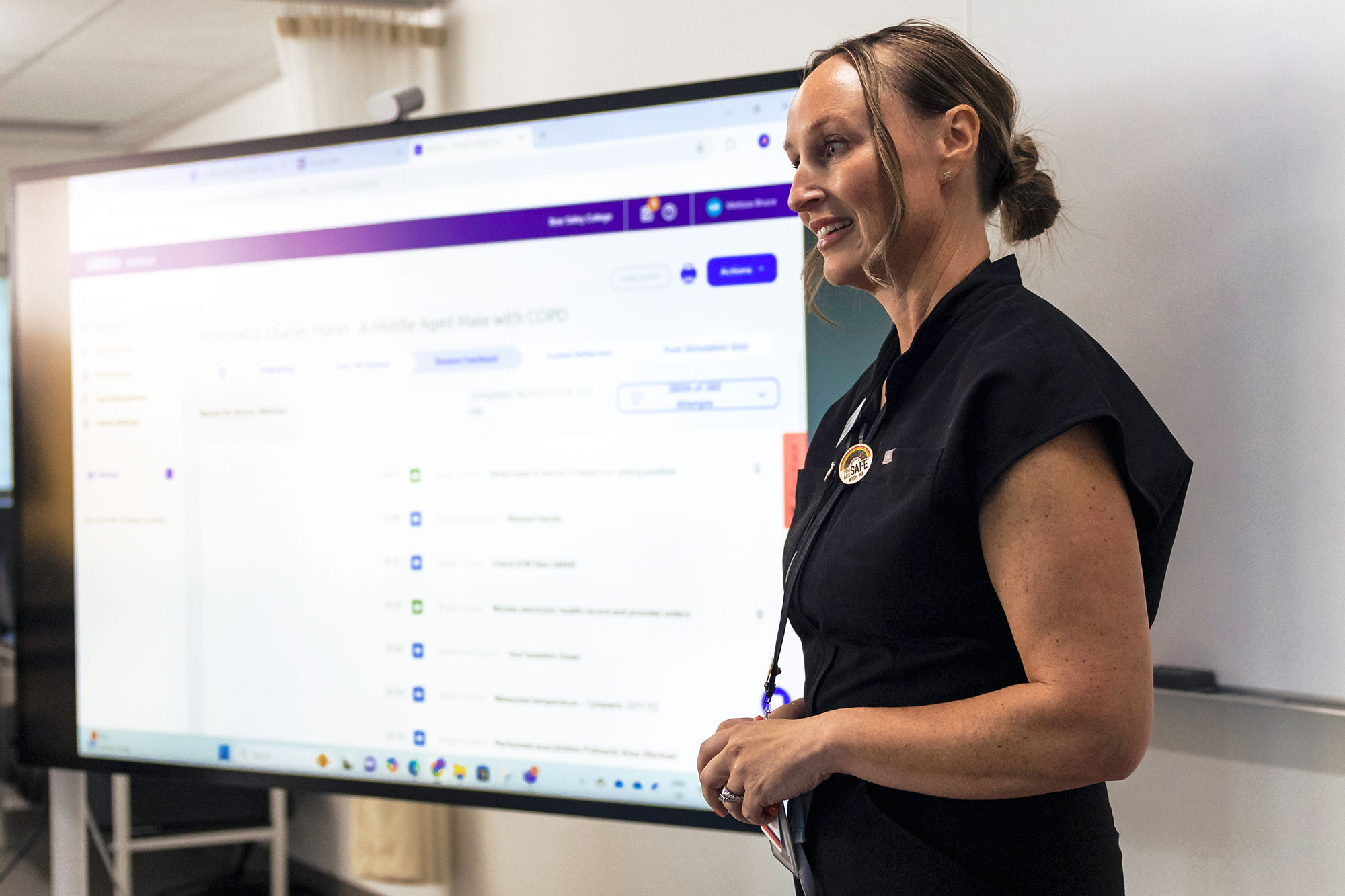%2520(3)%2520(1).png)
Table of Contents
Name of the heading
1- Start your table with the syntax {start-table}
2 - Add an H3 Heading to create a new column (this will be the column title)
3 - List cells as bullet points in a List element
4 - End your table with the syntax {end-table}
Are you looking for proven methods to enhance clinical judgment in novice nurses? Discover evidence-based strategies that can transform their decision-making abilities and improve patient outcomes.
Clinical judgment is a critical aspect of nursing practice. It encompasses the nurse's ability to assess, analyze, and synthesize relevant patient information to make informed decisions about patient care. Effective clinical judgment enables nurses to provide safe, high-quality care that is tailored to individual patient needs. Moreover, it plays a significant role in preventing medical errors and improving patient outcomes. In today's complex healthcare environment, developing strong clinical judgment skills is crucial for all nurses, regardless of their experience level.
Clinical judgment challenges faced by novice nurses
Novice nurses often face considerable challenges in developing their clinical judgment skills, like limited clinical experience, difficulty in applying theoretical knowledge to real-world situations, and a lack of confidence in their decision-making abilities.
Evidence-based strategies to help novice nurses
This article aims to provide an overview of evidence-based strategies that can help novice nurses enhance their clinical judgment skills. These strategies, which include immersive VR simulation-based training, structured debriefing, and mentorship programs, have been shown to contribute to the development of clinical judgment in nursing. By integrating these approaches into nursing education and practice, we can better support novice nurses in their journey toward becoming confident, competent, and effective healthcare providers.
1. Immersive VR simulation-based training
Immersive VR simulation-based training, such as UbiSim, has emerged as a powerful tool for enhancing clinical judgment skills in novice nurses. By providing a safe and controlled environment, this kind of simulation allows learners to practice their skills, make mistakes, and receive immediate feedback without causing harm to real patients. This experiential learning approach enables novice nurses to bridge the gap between theoretical knowledge and real-world clinical practice.
A study on nursing VR found that undergraduate nursing students “believed that virtual reality would complement current teaching and learning approaches, help build learners' confidence, and provide nursing students with a safe space for trial, error, and problem-solving.”
2. Structured debriefing
Debriefing is a facilitated discussion that occurs after a clinical experience, simulation, or other learning activity, providing an opportunity for learners to reflect on their performance, receive feedback, and identify areas for improvement. By engaging in debriefing sessions, novice nurses can gain insights into their thought processes, decision-making strategies, and actions, helping them to refine their clinical judgment skills over time.
Another study made readily available by the NIH shared, “Debriefing being a vital tool in healthcare should be made a core part of training curriculum for its professionals.”
UbiSim has a built-in debriefing experience following the PEARLS framework that includes a recording of the simulation, evidence-based feedback that populates in response to the student’s actions during the scenario, and guided reflection questions. This provides students with an opportunity to reflect on their performance and ways to improve their nursing care.
3. Mentorship
Mentorship programs play a crucial role in fostering clinical judgment in novice nurses by pairing them with experienced nurses who provide guidance, support, and feedback throughout their professional development journey.
A study that addressed the role of mentorship suggested, “Nurses with a mentor were retained at a 25% higher rate than those not mentored. Implementation of a mentor program reduced the training cost to the facility and increased retention and morale.”
Experienced nurses, acting as mentors, can share their expertise, clinical knowledge, and practical wisdom with novice nurses, helping them navigate the complexities of patient care and develop sound clinical judgment skills. In UbiSim, this can happen through peer-to-peer facilitation or through instructor-led facilitation.
Interested in exploring how immersive VR simulations can positively impact nursing education and enhance clinical judgment skills in novice nurses? Watch our Clinical Judgment Webinar today.
FAQs
Heading 1
Heading 2
Heading 3
Heading 4
Heading 5
Heading 6
Lorem ipsum dolor sit amet, consectetur adipiscing elit, sed do eiusmod tempor incididunt ut labore et dolore magna aliqua. Ut enim ad minim veniam, quis nostrud exercitation ullamco laboris nisi ut aliquip ex ea commodo consequat. Duis aute irure dolor in reprehenderit in voluptate velit esse cillum dolore eu fugiat nulla pariatur.
Block quote
Ordered list
- Item 1
- Item 2
- Item 3
Unordered list
- Item A
- Item B
- Item C
Bold text
Emphasis
Superscript
Subscript
Explore more

From 30 Minutes to 3: How AI Enhanced Analytics Transforms Debriefing Preparation
AI Enhanced Analytics: Scenario Performance Data now available in UbiSim's Version 1.19
.jpg)
Behind the Scenes: How We Brought Incisions & Dressings to Life in VR
How the UbiSim team built a VR system displaying 300+ distinct incision states—balancing clinical accuracy, technical constraints, and nursing education needs.
.jpg)
Step Inside the Room of Errors: Playful Exploration, Serious Skills
Learn how UbiSim's Room of Errors transforms nurse training through investigative play. Students spot hidden safety risks and build situational awareness.


